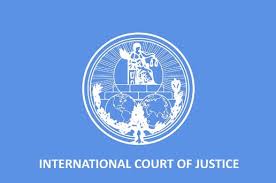Theory of Statelessness of Individuals under International Law
What is Statelessness?
Statelessness refers to a situation where an individual is not considered a national by any state under the operation of its law. In other words, a stateless person has no nationality or citizenship recognized by any country.
Why Does Statelessness Matter?
Nationality is crucial because it establishes the legal bond between an individual and a state.
Without nationality, a person lacks the protection, rights, and identity that come from being a citizen.
Stateless people often face difficulties accessing basic rights: education, healthcare, employment, travel, and legal protection.
Theoretical Foundations under International Law
Nationality as a Legal Bond:
Under international law, nationality is the legal relationship between an individual and a state. It involves mutual rights and duties.
No Right to Nationality in Early Law:
Historically, international law did not guarantee a right to nationality. Nationality was seen as an internal matter of each state.
Emergence of the Right to Nationality:
After World War II, the importance of preventing statelessness was recognized internationally, especially with the creation of the Universal Declaration of Human Rights (UDHR, 1948):
Article 15 of the UDHR states:
“Everyone has the right to a nationality.”
“No one shall be arbitrarily deprived of his nationality nor denied the right to change his nationality.”
International Instruments Addressing Statelessness:
1954 Convention relating to the Status of Stateless Persons: Defines who is stateless and protects stateless persons.
1961 Convention on the Reduction of Statelessness: Encourages states to prevent statelessness by various rules on nationality acquisition and loss.
Causes of Statelessness (theory):
State succession: When new states are created or borders change, people might lose nationality.
Discrimination: Ethnic, religious, or gender discrimination in nationality laws can leave some stateless.
Administrative gaps or conflicts in laws: Overlapping or conflicting nationality laws between countries.
Denationalization: States may strip nationality for political or punitive reasons.
Failure to register births: Sometimes children remain stateless if birth registration or nationality transmission is lacking.
Legal Principles in Addressing Statelessness:
States have the sovereignty to determine nationality laws, but must not violate human rights or cause statelessness arbitrarily.
Preventive measures are encouraged to avoid statelessness at birth or later.
Stateless persons should be protected under international law to ensure basic rights and dignity.
Summary:
The theory of statelessness under international law is about understanding nationality as a legal bond essential for personal rights and protection. International law increasingly recognizes preventing and reducing statelessness as a key human rights issue, and aims to protect stateless individuals through treaties and principles.
Do write to us if you need any further assistance.












comments